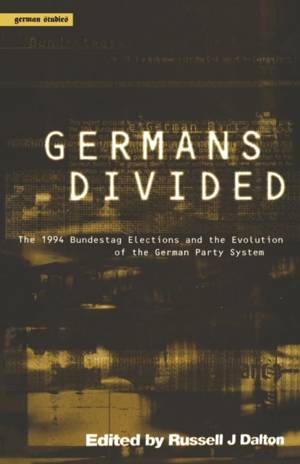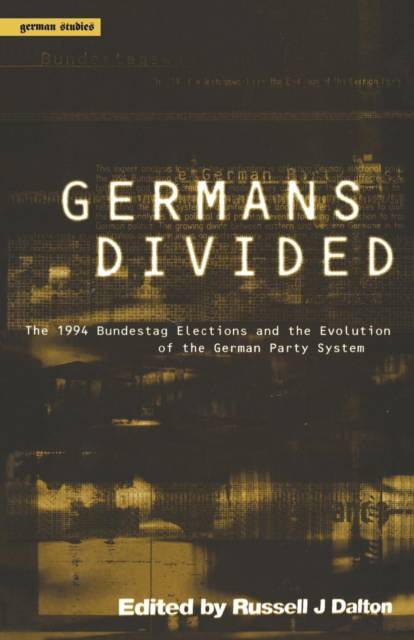
- Afhalen na 1 uur in een winkel met voorraad
- Gratis thuislevering in België vanaf € 30
- Ruim aanbod met 7 miljoen producten
- Afhalen na 1 uur in een winkel met voorraad
- Gratis thuislevering in België vanaf € 30
- Ruim aanbod met 7 miljoen producten
Zoeken
Germans Divided
The 1994 Bundestagswahl and the Evolution of the German Party System
€ 79,95
+ 159 punten
Omschrijving
This expert analysis -- the sequel to Dalton's The New Germany Votes -- looks at how unification is affecting German electoral politics, and focuses on the 1994 Bundestag elections. The unsettling process of Unification affected voters and parties in both East and West Germany and made it very difficult for the main parties to offer coherent programmes that addressed the nation's needs. Particular attention is paid to the problems of recreating the party system in a unified state and the voters' responses to unification. In addition, the book analyzes the political and partisan events following the election to track the future course of German politics. The growing divide between eastern and western Germans in terms of their evaluation of German unification and their views on contemporary politics is also discussed. This book constitutes a comprehensive overview of the social and political forces in Germany today which are shaping electoral politics and the future of the nation.
Specificaties
Betrokkenen
- Uitgeverij:
Inhoud
- Aantal bladzijden:
- 336
- Taal:
- Engels
- Reeks:
Eigenschappen
- Productcode (EAN):
- 9781859731659
- Verschijningsdatum:
- 1/08/1996
- Uitvoering:
- Paperback
- Formaat:
- Trade paperback (VS)
- Afmetingen:
- 138 mm x 214 mm
- Gewicht:
- 476 g

Alleen bij Standaard Boekhandel
+ 159 punten op je klantenkaart van Standaard Boekhandel
Beoordelingen
We publiceren alleen reviews die voldoen aan de voorwaarden voor reviews. Bekijk onze voorwaarden voor reviews.










